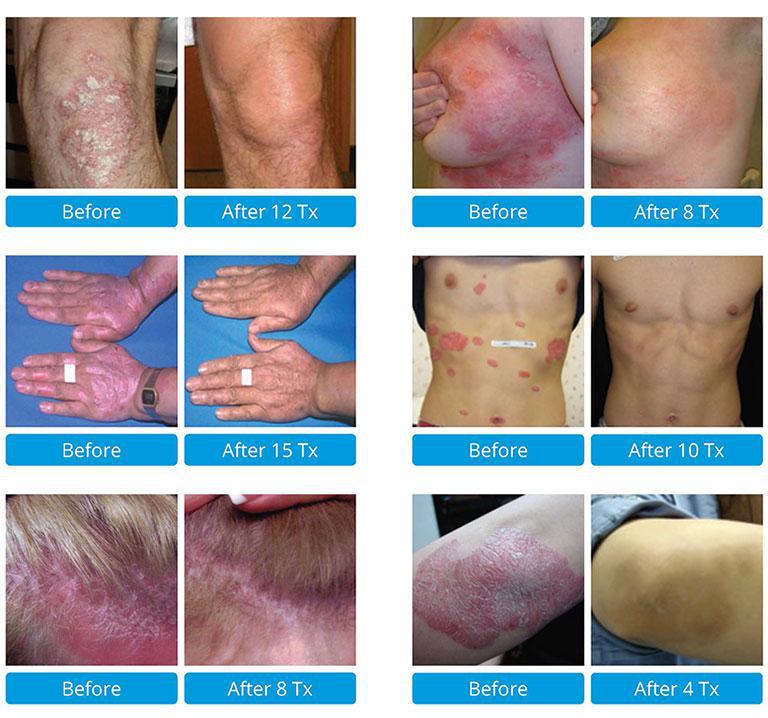 Psoriasis is a prevalent autoimmune disease in the United States, affecting an estimated 7.5 million adults, according to the National Psoriasis Foundation. Board-certified dermatologist and dermatological surgeon, Eliot Y. Ghatan, MD, FRCPC, works alongside a group of experienced skin care and aesthetic specialists providing effective solutions for psoriasis at Dr. Ghatan Dermatology, Cosmetic & Laser Surgery in Ocean Parkway, Midwood of Brooklyn, New York. There are successful ways you can manage and control your condition and soothe your skin. Call the office or schedule online to find out more.
Psoriasis is a prevalent autoimmune disease in the United States, affecting an estimated 7.5 million adults, according to the National Psoriasis Foundation. Board-certified dermatologist and dermatological surgeon, Eliot Y. Ghatan, MD, FRCPC, works alongside a group of experienced skin care and aesthetic specialists providing effective solutions for psoriasis at Dr. Ghatan Dermatology, Cosmetic & Laser Surgery in Ocean Parkway, Midwood of Brooklyn, New York. There are successful ways you can manage and control your condition and soothe your skin. Call the office or schedule online to find out more.
What is psoriasis?
Psoriasis is a skin condition and an autoimmune disease. Psoriasis affects the skin by speeding up the life cycle of skin cells, making them accumulate rapidly on the surface of your skin. These excess skin cells form red patches and scales that can be itchy, painful, and become a cosmetic concern.
Psoriasis is considered a chronic skin condition that can come and go in flares.
What are the symptoms of psoriasis?
The symptoms of psoriasis vary and there are different types: plaque, scalp, nail, inverse, pustular, and guttate.
The most common symptoms of psoriasis are:
- Stiff and swollen joints
- Burning, itching, or sore muscles
- Ridged, pitted, or thickened nails
- Dry and cracked skin that might bleed
- Red patches that have silvery scales
Small scaling spots are usually seen in children.
What causes psoriasis?
It isn’t clear what causes psoriasis. Many experts point to a problem or malfunction with the immune system, especially the T-cells and other white blood cells in your body. T-cells typically travel through your body and protect you against foreign substances like bacteria or viruses.
With psoriasis, the T-cells mistakenly attack your healthy skin cells like they’re trying to fight an infection or heal a wound. Overactive T-cells can spike a heightened production of more T-cells, other white blood cells, and healthy skin cells.
Genetic and environmental factors might play a role in causing or worsening psoriasis, such as:
- Genetics
- Infections
- Chronic stress
- Injury to the skin
- Certain medications
- Vitamin D deficiency
Tobacco use and excess alcohol consumption can also worsen psoriasis or trigger a flare-up.
What are the treatments for psoriasis?
When treating psoriasis, Dr. Ghatan aims to reduce inflammation and stop or slow the cells from growing so rapidly.
Dr. Ghatan might suggest various treatment methods for psoriasis, such as:
- Light therapy with gentle ultraviolet light
- Topical creams, such as retinoids, corticosteroids, moisturizers, and salicylic acid
- Oral medications, systemic medications, and injections, such as cyclosporine and biologics
- Lifestyle changes, such as exercise, stress management, and a nutrient-dense healthy diet
Dr. Ghatan provides the EX-308® laser system to treat psoriasis. These painless treatments take just a few minutes in-office. The EX-308 system delivers a concentrated beam of ultraviolet light to prompt normal skin healing. The system even works on hard-to-treat areas, such as the knees, soles, scalp, and elbows.
Dr. Ghatan usually recommends treatments twice a week for about 4-6 weeks to achieve impressive results that can leave the treated area free from flare-ups for several months or longer.
What diet may help psoriasis?
Avoid red meats, margarine, nightshades ( tomato, eggplants, peppers, white potato, paprika), shellfish, junk food (soda, sweets, candy & pastries, chocolate, potato chips, french fries), yeast or yeast laden foods, coffee (<3 cups/day) , gluten (wheat, rye), pizza, alcohol, hot spices, gravies, coconut oil, strawberries, and tobacco (smoking).
What supplements may be helpful for psoriasis?
Vitamin D & Turmeric, fish oil, selenium, zinc, hypocaloric diet may be helpful.
Call Dr. Ghatan Dermatology, Cosmetic & Laser Surgery or book your consultation online today.

